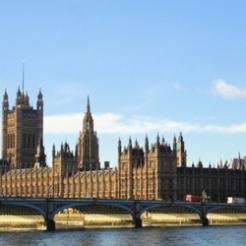A parliamentary committee has backed a bill containing new powers for the Charity Commission, and has said it should also include more powers not included in the original draft.
The committee also said there should be more safeguards around a proposal to allow the regulator to issue statutory warnings.
The Parliamentary Joint Committee on the Draft Protection of Charities Bill, made up of a dozen MPs and peers, took evidence from the Commission itself and from sector infrastructure bodies, legal experts and academics. It has published its final report today.
Measures in the bill include:
- A ban on people with convictions for terrorism or money laundering from trusteeship
- A wider power to disqualify a person from being a charity trustee where the Charity Commission considers them unfit
- A power for the Commission to require a charity to shut down if there has been misconduct or mismanagement and there is a risk to public trust and confidence in charities
- An end to several loopholes, including one which allows trustees to avoid Commission enforcement action by resigning
- A power for the Commission to issue a statutory warning in less serious cases, which will be stronger than the current power to issue advice and guidance
Committee recommends more measures in bill
The committee said it supported the inclusion of powers originally proposed by the Commission and the Cabinet Office, but not present in the version of the bill put to it for consideration.
Those powers include a provision preventing individuals disqualified as trustees from holding other senior positions in charities, which the committee said should be based on disqualification regimes for company directors and the Financial Conduct Authority’s fitness and propriety test.
And they include a proposal that the Commission would have the power to direct charities not to undertake activities if it was concerned about wrongdoing. Several charity figures objected to this power, saying it was too broad, but the Office of the Scottish Charity Regulator said it already had such powers.
Greater safeguards needed over some powers
The committee said the proposal to issue a statutory warning was a “sensible” one, but that it needed greater safeguards.
It said the statutory warning process should include safeguards “on the face of the bill” which limited when a warning could be issued. It also said the Commission should have to write to a charity saying it was giving a warning, and that the charity should have a reasonable time period to respond before the warning was formally issued and published.
The committee said it supported proposals to prevent people with convictions for terrorism and money laundering from being trustees, but that there should be more thought given to waivers in order to support the rehabilitation of offenders, and that the government should clarify the effect of cautions, rather than convictions, for these offences.
Lord Hope, chairman of the committee, said: “The provisions in the draft bill are to be welcomed. Much of what is proposed, including extending the scope of offences that would disqualify someone from being a charity trustee to include money laundering and terrorism offences, is designed simply to close loopholes. Everyone we heard from agreed that these needed to be addressed.
“We agree that it is sensible to give the Commission a new power to issue statutory warnings to charities that are acting inappropriately. But we also think there need to be clear safeguards to ensure that charities have the opportunity to respond before such a warning is officially made and publicised.
Accessibility of Commission website an issue
The committee also said it was concerned about the accessibility of Commission advice and guidance, which was previously hosted on the Commission’s own website, but has recently been moved to the gov.uk website.
It said that providing advice and guidance was a very important function for the Commission, but a number of witnesses had highlighted that it was difficult to use the gov.uk website to access this information. It said the government and the Commission should review whether the information was sufficiently accessible.









